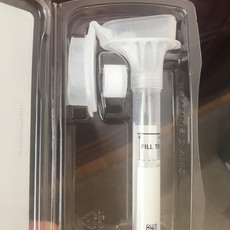My parents emigrated from Madeira, Portugal to London, UK at 17 years old and I was born and raised in London. Despite this, I always referred to myself as Portuguese. In hindsight, this doesn't make a lot of sense, however at school almost everyone had at least one foreign parent and would identify with the non-British nationality, and since London is full of immigrants it was never really questioned.
That is, until I went to university in Bristol. There, many of my friends were immigrants and when I'd say I was Portuguese many of them would deny this as I hadn't grown up there or lived there, and thus I was English. For some reason, this really annoyed me as I didn't feel English and I was very proud of being Portuguese. I had grown up eating Portuguese food at home instead of English roasts, all of my family was Portuguese and I'd gone to Madeira almost every holiday growing up. I also knew much more about Portugal's history than the average Englishman and the culture came as second nature. I wasn't even a British citizen until I was 16. Equally, I understood British politics, humour, and schooling more than Portugal's. Both London and Madeira felt like home, but whichever nationality I said I was, people would deny it and I was frequently called 'grey zone' as I didn't 'fit in' to one box like most others. Ironically, it was mostly the European immigrants who had moved to the UK that referred to me as 'grey zone' as opposed to my English mates. I even spent a month 'living' in Madeira one summer of university, just to say that I had lived there, which was stupid in hindsight and I don't know why I let it get to me.
As I spent more time in Madeira, which was my favourite place in the world until I was 21, I realised that because of my English accent I would always be 'the English one', and as I grew up I picked up more on sexism and racism, which I wasn't used to in London. I also realised through speaking Portuguese and Spanish with natives, that people are a lot more likely to make fun of your accent abroad as they're not as used to hearing accents compared to in London, which can be discouraging. University made me realise how much I loved London and felt like I fit in. I loved the diversity, the global connectivity, the culture, and the opportunities offered. I had grown up around other second-generation immigrants, obtained the accent and gotten the Oyster. Nowadays, I always refer to myself as a Londoner, and like many Londoners, I'm extremely privileged and grateful to have two passports (especially with Brexit) and to have grown up with two cultures, and have come to embrace this. I also love the contrast of being from both an island and a big city. The best way to understand the duality is by reading Kieran Yates' chapter in 'The Good Immigrant'.
Just as I had accepted that I didn't have to be just one nationality simply because other people said so, my mum revealed that in fact her grandpa was tall, pale, and had light eyes (the opposite of most Portuguese people), and was thought to be North European. This whole time, I thought that my DNA would be 95% Iberian, and now I was finding out that actually, I could be partially British. Admittedly, some of my mum's family were blonde, and most of them had light eyes and didn't tan easily, which was unusual.
I had wanted to do a DNA test to find out about my ancestry for years now and this seemed like the perfect opportunity. I was very intrigued as Portugal's history includes the muslim Moors, many explorers, and unfortunately a big role in the transatlantic slave trade. When I visited Jordan, I was told my eyes looked Arab, in Havana I was told my hair looked Cuban, in Barcelona I was told I looked like a local, and my hairdresser noted that my hair was Mediterranean. Madeira was discovered by the Portuguese in the 15th century and was uninhabited. Madeira is also much closer to Africa than it is to Europe, and my brother was convinced that my hair was due to some African heritage. I ordered a 23andMe test, and simply had to produce a saliva sample and send it back. The instructions were very clear and simple, and once the sample had arrived back in the US, the results are produced quickly.
There are different package options, however I decided to go for 'Ancestry and Traits' without 'Health' as I have no interest whatsoever in finding out whether I am more or less likely to develop a certain disease. I was excited to find out my results, although I was worried that the results would be very vague (e.g. 99% South European). However, I was extremely impressed with the accuracy, as it specified that 77.8% was Portuguese (specifically from Madeira, with no traces of Spanish unexpectedly), and I found out that I was 6% Italian (suggesting that a great-great-grandparent of mine was Italian). They even identified recent (within the last 200 years) ancestry in Demerara-Mahaica, Guyana and Trinidad and Tobago! My results are as follows:

Despite the wide range of results, my DNA is clearly mostly Madeiran and Northwestern European only accounts for 2.8%, suggesting that I'm more African than British, and so I'll maintain that I'm a Londoner. (I am very aware that being 3.2% African does not make me African in the least, however I was very happy to see a wide range of ancestry, from Madeiran to French & German to Arab to West African).

















Comments